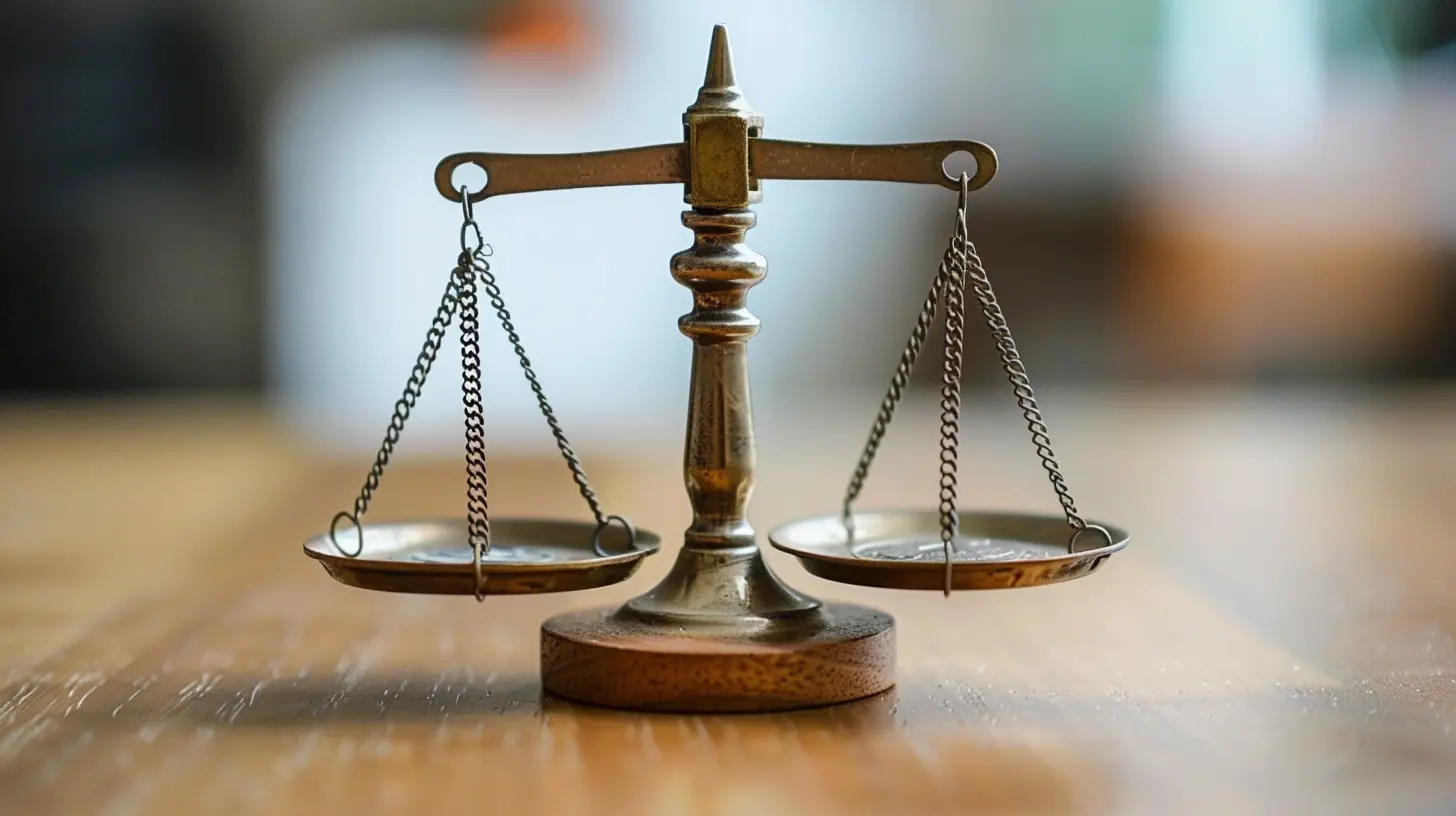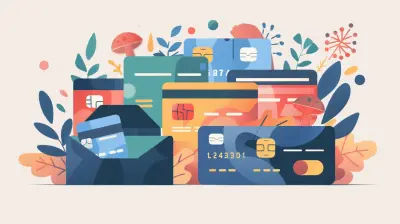6 April 2025
Debt is like that loud, buzzing mosquito in your ear—it’s hard to ignore and even harder to get rid of without a clear plan. But here’s the thing: strategically paying off your debt isn’t just about finding financial peace—it’s also a key step in boosting your FICO score. Whether you’ve got student loans, credit card debt, or an auto loan riding on your shoulders, taking a focused approach can help you achieve better financial health and give your credit score the glow-up it deserves. Let’s dive into how you can tackle your debt strategically and watch your FICO score climb like a champion.
What Is A FICO Score and Why Does It Matter?
Before we jump into the nitty-gritty, let’s get cozy with some basics. Your FICO score (created by the Fair Isaac Corporation) is essentially your financial GPA—a three-digit number summarizing how responsible you are with credit. It ranges from 300 to 850, with higher numbers being golden.Why does it matter? Well, lenders, banks, and even landlords use this score to decide whether you’re trustworthy with money. A higher FICO score can help you snag lower interest rates on loans, qualify for better credit cards, and even save you thousands of dollars in the long run. Simply put, it’s a big deal.
So, how does debt fit into this picture? Debt makes up a significant chunk of the factors influencing your FICO score—specifically, your credit utilization ratio, payment history, and the length of your credit history. That’s why paying off debt strategically isn’t just good for your wallet—it’s a direct investment in your financial future.
The Role of Debt in Your FICO Score
Let’s break it down. Your FICO score is calculated based on five main factors:1. Payment History (35%) – Do you pay your bills on time? Late payments will drag your score down faster than skipping leg day at the gym.
2. Credit Utilization (30%) – This is the amount of available credit you're using. High utilization equals a lower score.
3. Length of Credit History (15%) – How long have your accounts been open? Older accounts tend to boost your score.
4. Credit Mix (10%) – Do you have a variety of credit types (e.g., credit cards, auto loans, mortgages)? A good mix shows maturity.
5. New Credit (10%) – How many new credit inquiries or accounts do you have? Too many can make you look desperate.
What stands out here? Over 65% of your FICO score depends on your payment history and credit utilization. This means that effectively managing and paying off debt can dramatically improve your score. But "paying off debt" isn’t as simple as willy-nilly throwing money at your balances. Strategy is key—think chess, not checkers.
The Game Plan: Strategies to Pay Off Debt and Boost Your FICO Score
1. Tackle Your Credit Utilization Ratio First
Your credit utilization ratio is the percentage of your available credit that you’re using. For example, if you have a total credit limit of $10,000 and your balances add up to $5,000, your utilization ratio is 50%. Ideally, you want to keep this below 30% (and even better, under 10%).What’s the game plan here?
- Focus on paying down your credit card balances first since they weigh heavily on your utilization score.
- If you can, ask for a credit limit increase. This bumps up your available credit, which can automatically lower your utilization ratio.
- Avoid maxing out any single card. Try to spread balances evenly or leave some cards at zero.
Remember: Your utilization ratio is updated frequently, so improving this can deliver quick wins for your FICO score.
2. Do the “Snowball” or “Avalanche” Method
Not sure where to start paying off debt? These two popular strategies can guide your game:- Snowball Method: Pay off your smallest debt first, regardless of the interest rate. Once that’s cleared, move on to the next smallest. It’s about gaining momentum—like a snowball rolling downhill.
- Avalanche Method: Pay off debt with the highest interest rate first. This saves you the most money in the long run.
Pick the method that fits your personality. If you’re motivated by quick wins, go for the snowball. If you’re all about long-term savings, pick the avalanche. Either way, both get the job done.
3. Automate Your Payments
Late payments are a major FICO score killer, often sticking to your credit report for up to seven years. Don’t risk it. Set up autopay for at least the minimum amount due on all your accounts. Even if money’s tight, keeping up with minimum payments keeps your credit history in good standing.Pro tip: If you can, set reminders a few days before payment deadlines to make additional payments (even small ones) and knock down your balance faster.
4. Consolidate and Simplify Your Debt
Feeling buried under a mountain of bills? Debt consolidation might be your new best friend. Consolidating involves combining multiple debts (like credit card balances or personal loans) into a single loan with a lower interest rate.Here’s how it helps your FICO score:
- Consolidation can lower your credit utilization by paying off revolving debt (like credit cards) and converting it into installment debt (like a personal loan).
- It simplifies your payments, making it easier to stay organized and avoid missed deadlines.
But don’t overdo it—applying for too much new credit at once can ding your score.
5. Negotiate With Creditors
Yes, you can haggle with your creditors. If you’re struggling to make payments, reach out to them. Lenders want their money, so they may be willing to lower your interest rate, offer a settlement, or set up a more manageable payment plan.Be honest and proactive. A quick phone call or letter could save you from a missed payment or a collection account, which can wreak havoc on your FICO score.
6. Avoid Closing Old Accounts
Once you pay off a credit card, the temptation to slam it shut can be strong. But resist! Closing old accounts can shorten your credit history, which impacts 15% of your FICO score. Instead, keep the account open and occasionally use it for small purchases. This keeps it active and working in your favor.7. Check Your Credit Report for Errors
Imagine sweating bullets over an unpaid bill, only to realize it’s not even yours. Mistakes on your credit report happen more often than you’d think, and they can unfairly drag down your FICO score.Get in the habit of pulling your credit report annually (you can do this for free at AnnualCreditReport.com). If you spot an error, dispute it immediately. A clean report often equals a healthier score.
The Emotional Side of Paying Off Debt
Paying off debt isn’t just a numbers game—it’s an emotional journey. It’s tough, and let’s be real: sometimes it feels like swimming upstream with weights tied to your ankles. But every small win adds up. Celebrate the progress, not just the finish line. Did you knock out a $300 balance? Grab a latte and pat yourself on the back.And remember, you’re not alone. Millions of people are walking this same road. Lean on your friends, family, or even online communities for support. Surround yourself with those cheering you on instead of enabling bad financial habits.
Final Thoughts: Strategic Debt Payoff Is a Marathon, Not a Sprint
Improving your FICO score by paying off debt strategically is a lot like training for a marathon—it takes discipline, focus, and patience. But with a plan in place, every dollar you pay off gets you closer to the financial freedom finish line.Remember to make consistency your superpower. Pay on time, chip away at balances, and reevaluate your strategy as your situation evolves. Your FICO score will thank you, and so will your future self. So lace up—this is your race to win.





Kenzie Campbell
Great insights on debt repayment strategies! It’s fascinating how managing debts wisely can significantly enhance our FICO scores. This approach not only builds credit but also fosters financial health.
April 15, 2025 at 8:10 PM